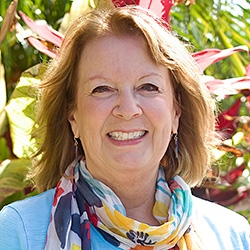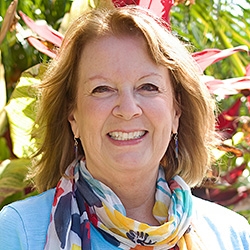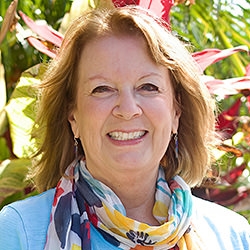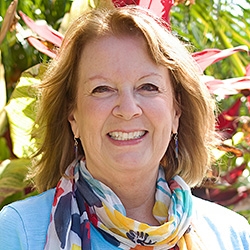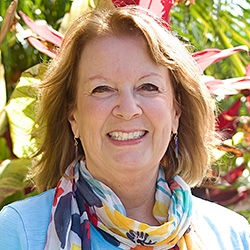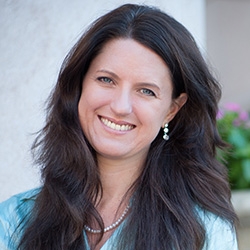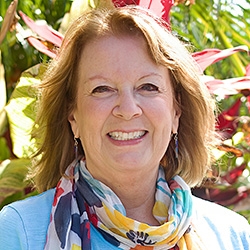

Search Results: asking
-
Do you crave greater intimacy with your partner? Wish you had more ease for asking for what you want? Join relationship expert, Kelly Bryson in learning practical tips for building intimacy with your partner.
-
Delve into the power of forgiveness with Rodger Sorrow! Listen in as Rodger explores 3 areas: asking for forgiveness, when it's hard to forgive, and forgiving ourselves.
-
When someone doesn't want to talk some options include releasing your attachment to the strategy you want, asking about and affirming with empathy their reasons for not talking, looking for what support could be helpful to shift to more openness, letting go, and grieving. Read on for more on this, including possible reasons for why they might not want to engage on it.
-
Roxy Manning shares some strategies to support a child's natural curiosity when asking questions about physical differences using NVC skills.
-
Roxy Manning shares some strategies to support a child's natural curiosity when asking questions about physical differences using NVC skills.
-
The highest leverage point for effective meetings is preparing with self inquiry. Before saying something, we can ask ourselves about who this is serving, what needs it serves to say it, if there is a request we want to make, how to make the request actionable, and more. If more people at meetings do this, it can reduce the overall number of tangents we experience at meetings.
-
We can ask for what we want but if we repeatedly don’t get it from one source, it's our responsibility to find a new way to get it. We don’t honor our relationships when we insist that people who are unavailable or unwilling to support us meet our needs. Read on for related a parable about a woman persistently asking to get milk from a hardware store.
-
Ask the Trainer: Can NVC transform group conflict? Trainer shares stories and answers the question.
-
Trainer Tip: In an efficient group process, clarity is key. Try to only say things if you are clear what you want back from the group. Then ask for what you want so people don’t have to figure it out for you. If someone says something and you’re not sure what he wants back from the group, anyone can assist by saying this: “I’m confused about what you would like from us. Would you help us clarify what kind of a response you’re looking for?”
-
October always makes me think about Marshall Rosenberg, the founder of Nonviolent Communication. He was born October 6, 1934. If he were still alive today (he died February 7, 2015), he would be 89 years old!
-
Exploring how to keep NVC natural and authentic without sounding mechanical or formal.
-
Using his own life experience, Eric explores why we need support from others, what support might look like, and what blocks us from asking for support for our relationships.
-
- Learn how every decision we make perpetuates the status quo or brings us closer to the vision of a world that works for all
- Find out about our big brain capacity to integrate needs, impacts, and resources to make decisions that work for everyone
- Understand why power differences interfere with collaborative decisions and what can be done about it
- Discover tools that support collaboration in larger groups and organizations— even across power differences!
-
Trainer Tip: Mary offers 3 foundational tips for making requests: positivity, specificity and doability.
-
Trainer Tip: Next time someone asks how you're doing, you can check in with yourself and offer an honest answer. It doesn't need to be 15-minute response. You could say, "I’m feeling tired and overwhelmed by this project. I’m sure it'll work out. I’m just worried about it now. How are you?” If you're ready to do that, then you can be honest with yourself. Doing this can help you be present to how you are, and hold your experience as a gift to self and others.
-
Sometimes even a very skilled empathy practicitioner can go into offering a non-empathic response, even when asked for empathy. Why? One reason could be that our brains might be less receptive because of unseen forces that affect our brain and relationship with others. This article speaks to the deeper "why" and also to one thing we could do to turn it around...
-
In pandemic many are asked to stay home. If we are experiencing violence at home we're also most at risk of harm or death if we leave. There are also less visible pieces at work. In this situation, acknowledging our pain, needs and experience can lighten the internal load to meet what is real, and claim our truth. We can do the same for our kids. This can open more pathways forward, and provide strength to leave when its more viable.
-
Many of us have been raised within a right/ wrong culture. From very young ages, we are asked, "What is wrong?" Yvette Erasmus shares a different view where emotions can be seen as expansion and contraction, where they can help us identify our needs.
-
Hello friends. I’m Roxy Manning. When Mary invited me to write this letter, I could not help but reflect on what has been most alive for me recently… the way many of us will easily help someone else, but fear to ask for help for ourselves. On December 4, I had an operation. My doctor predicted my recovery would take three weeks. As I prepared for the time off, I rushed to complete all of my work and personal commitments. I prepped and froze dishes so I would have things to eat after and arranged meal deliveries. Very few people knew I was having an operation and I reached out to only one person for support after. In hindsight, I was doing everything I could so...
-
Instead of wondering, invest time today to ask at least one friend your friendship enhances her life. Such clarification can deepen the connection.
Quick Links

Stay in Touch!
We value your privacy, won't share your email address and you can easily unsubscribe any time.






